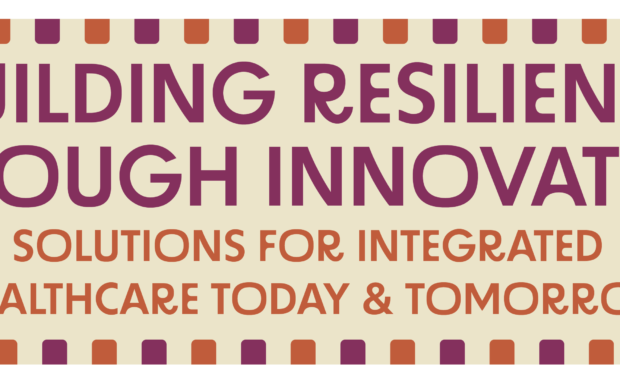The Montana Healthcare Foundation (MHCF) has been supporting the adoption of integrated behavioral health (IBH) across the state since 2016, through
I02 – The Impact of Community Based Patient Education Designed to Decrease 30-day Readmissions
Background/rationale: Across the U.S., 20% of cardiothoracic surgery patients discharged to home experience unplanned readmission within 30 days of
H08 – Addressing and Preventing Burnout for the Health Workforce During COVID-19
Background: This study focused on identifying specific interventions health systems implemented during the first year of COVID-19 across the micro
F07 – Provider Satisfaction with Integrated Behavioral Health in a Rural Primary Care Practice
Background/rationale: The use of integrative models of care represent best practice for the treatment of anxiety and depression among primary care
A05 – FQHCs Adaption to Tele-Behavioral Health and Delivery of Integrated Behavioral Health during the COVID-19 Pandemic
Background: The COVID-19 pandemic presented a significant challenge to federally qualified health centers (FQHCs) who provide comprehensive health
A01 – Depressive Symptoms as a Mediator in the Association between Adverse Childhood Experiences and Perceived Medication Intolerance and Poly-Allergy
The association between adverse childhood experiences (ACEs) and mental health conditions (i.e. depression, anxiety, PTSD) and physical health
F09 – The Impact of Telehealth on Warm Handoffs
Now, more than ever, we are facing the realities resultant from socioeconomic and racial disparities. Over the past 6 years, UW Health has worked in a
K05 – Implementation of Primary Care Behavioral Health Model through Telemedicine at Jefferson Health: Lessons Learned, Areas for Growth
The U.S. healthcare system has experienced a paradigm shift in the way it delivers care since the implementation of the Affordable Care Act. Its
J03 – Adverse Childhood Experiences and Adult Mental Health Outcomes
The association between ACEs and physical health outcomes is well-established and evident in research and practice. However, the association between
C02 – Family Support and Self-Management Behaviors in Underserved Latinx Patients with Diabetes
There are few areas where health disparities are more pronounced than the uniquely burdensome impact of diabetes on Latinx families. Though greater
Want to “Measure Up?” How to Select and Use Validated Assessment Tools in Integrated Primary Care Research and Evaluation
Clinician innovators and researchers should strive to use measures with strong psychometric properties in integrated primary care research,
Using Applied Implementation Science to Build Workforce Capacity Within your Integrated Care Organization
The "what"
Evaluation Basics: Design and Implementation
Evaluation is of critical importance in modern practice improvement and the delivery of evidence-based care. Evaluation is usually conducted
Integration of Psychiatric Providers into the Integrated Primary Care Team to Increase Patient Access to Psychiatric Care in Underserved, Rural Clinic
The increased demand for psychiatric care in our communities led the behavioral health department at Valley Health Systems, Inc. to pilot the addition
Primary Care Patients in Family Medicine Integrated Care and Emergency Department Utilization
Integrated care has been touted as a potential cost savings model based in part on the mechanism of medical (physical health) cost offsets (NASMHPD,
Convincing Health System Leaders to Invest in Integrated Care: How to Conduct SBIRT Research Using Clinical and Cost Outcomes
Integrated care practitioners have personal experience and anecdotal evidence that their work is valuable. Health system leaders, however, must
Accelerating Integrated Care Through ECHO: A Collaborative Learning Network in Arizona
Integrated behavioral health (IBH), which is team-based care co-delivered by primary care and behavioral health clinicians, is being rapidly adopted
Measurement Based Care for Behavioral Health Conditions in Primary Care Settings: How Do You Know Your Patient Improved?
Measurement Based Care is taking the behavioral health world by storm following the Kennedy Forum publication in 2016. There are finally reliable

